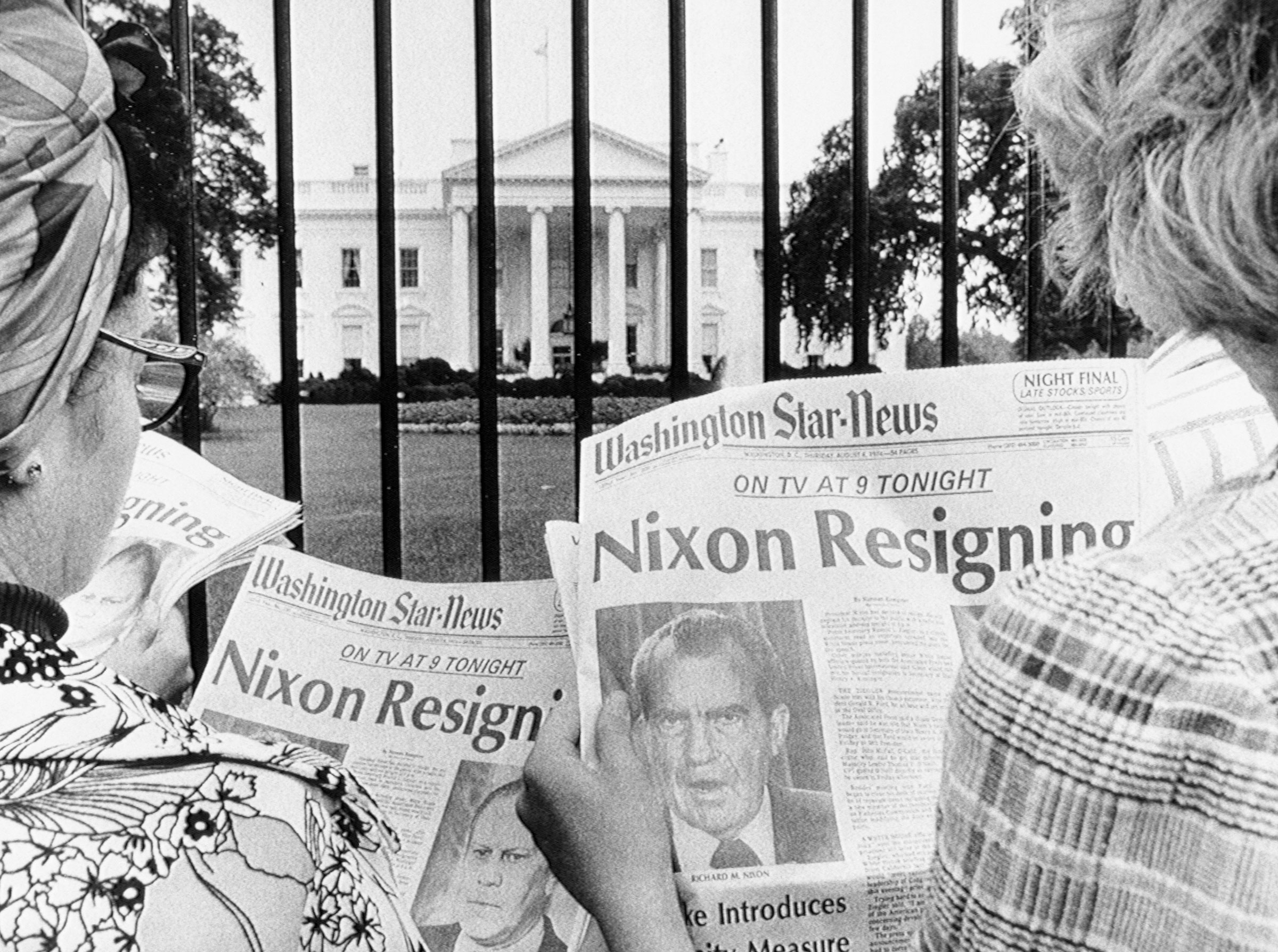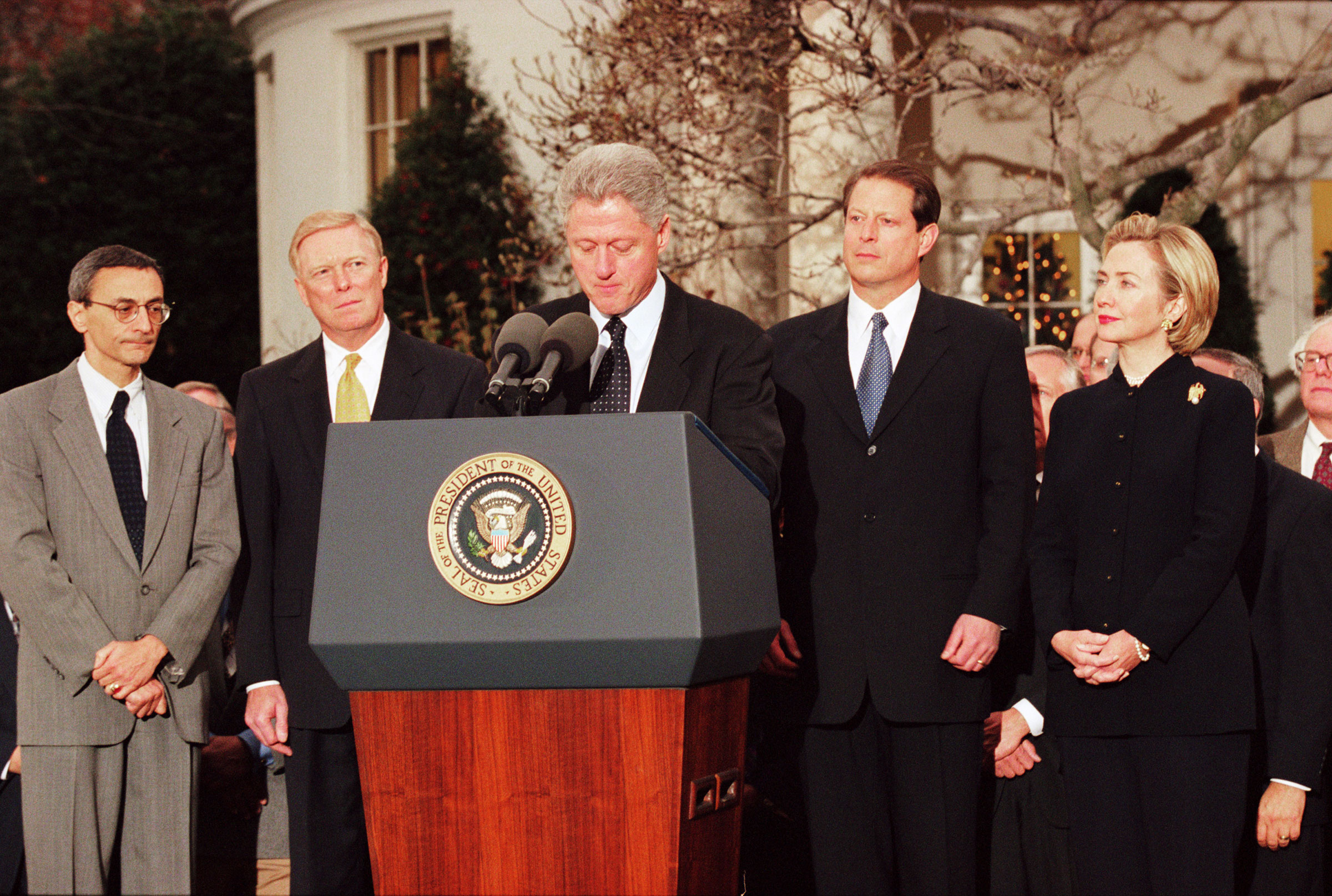Donald Trump will make history once again—this time as the first former U.S. president ever to be criminally indicted.
A Manhattan grand jury voted to indict the 45th President in a case involving his alleged hush-money payment to former porn star Stormy Daniels, according to his lawyers and media reports. Daniels says she and Trump had an affair; Trump denies this.
“Like all things with Trump, it’s unprecedented,” says Barbara Perry, a presidential historian at the Miller Center at the University of Virginia. President Ulysses S. Grant was technically the first President to be arrested—for speeding on a horse and buggy in 1872. But the Trump case will go down in history as one of the biggest political scandals in American history—even if the charges relate to the seemingly mundane offense of bookkeeping fraud.
Criminal history, as it pertains to U.S. presidents, is pretty brief.
In terms of the seriousness of the scandal, Perry argues the Watergate scandal is the closest parallel because it was the first time a President resigned. President Richard Nixon stepped down in 1974 after tapes revealed he participated in the cover-up of the 1972 break-in at a Democratic National Committee office in the Watergate complex. Several Nixon advisors, from the White House lawyer to the Attorney General, served prison time. While the Department of Justice initially argued that a sitting president couldn’t be indicted on a criminal charge, Nixon was not assured that protection post-presidency, so his successor Gerald Ford pardoned him. As Ford put it, “My fellow Americans, our long national nightmare is over.” But a Sept. 1974 Gallup poll reported 53% of Americans thought the pardon was the wrong thing to do, and it’s one of the reasons Ford was voted out of office in the next election.

Read more: What Was the Biggest Political Scandal in American History? 7 Historians Make Their Picks
Arrests of major federal officials have an even longer history. Secretary of the Interior Albert Fall was convicted of bribery in 1929 for accepting hundreds of thousands of dollars in Liberty Bonds after allowing a private company to lease oil reserves in Wyoming known as Teapot Dome. Back then, TIME called Fall “the first felon in a President’s cabinet in U.S. history.” As biographer Robert Dallek explained the significance of the scandal, “People in the government were selling the administration to the highest bidder, using their government power to exploit bad positions to make a lot of money.” Fall served under President Warren G. Harding from 1921-1923, and Harding came to be viewed as corrupt. Increased press scrutiny revealed that he had a mistress. The stress of the scandal is thought to have led to his fatal heart attack in August 1923.
Bill Clinton was the last President who was close to facing criminal charges. Paula Jones, a receptionist, claimed she suffered emotional damage after Clinton exposed himself to her in a hotel room in May of 1991, back when he was the Governor of Arkansas, and sued for sexual harassment. In Clinton v. Jones, “the Supreme Court sets a precedent that a president can be sued for actions allegedly taken before he becomes president—that in turn led to an impeachment,” says Perry. President Clinton did have to pay civil damages to Paula Jones, and the suit brought to light the other womanizing he had engaged in, including a roughly two-year relationship with former White House intern Monica Lewinsky. However, while he was impeached in Dec. 1998 and acquitted in Feb. 1999, the scandal didn’t impact his popularity. His approval ratings kept going up.

There are similar worries that charging Trump could further boost his popularity with his sympathetic base. Yet Clinton wasn’t trying to run for re-election; the impeachment happened in his second term. Trump, however, is trying to stage a comeback after losing the 2020 election. With GOP rivals already making hay of the scandal—Florida Governor Ron DeSantis quipped, “I don’t know what goes into paying hush money to a porn star”—it remains to be seen whether criminal charges would help or hinder his 2024 bid.
More Must-Reads from TIME
- Cybersecurity Experts Are Sounding the Alarm on DOGE
- Meet the 2025 Women of the Year
- The Harsh Truth About Disability Inclusion
- Why Do More Young Adults Have Cancer?
- Colman Domingo Leads With Radical Love
- How to Get Better at Doing Things Alone
- Michelle Zauner Stares Down the Darkness
Write to Olivia B. Waxman at olivia.waxman@time.com